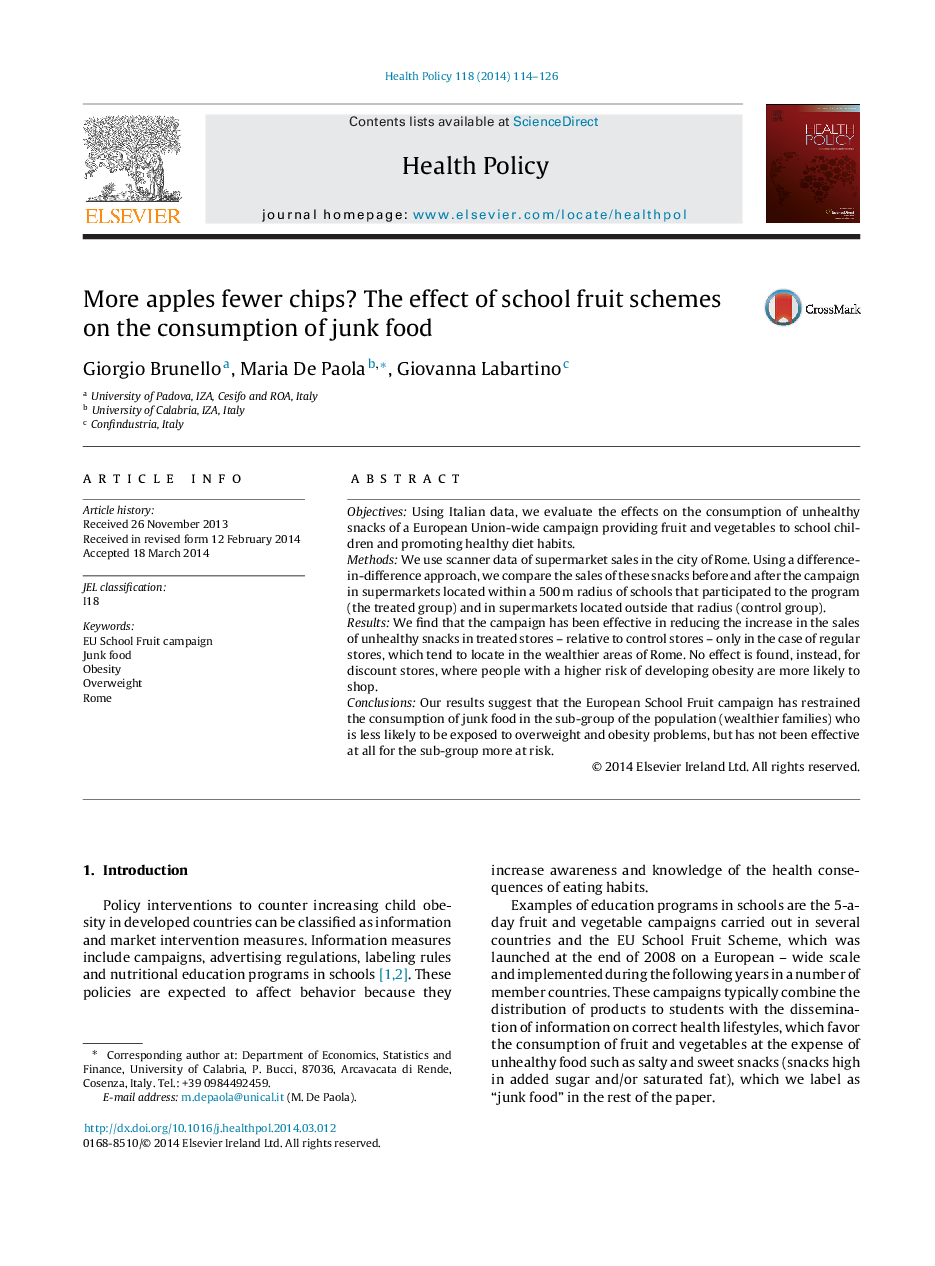| Article ID | Journal | Published Year | Pages | File Type |
|---|---|---|---|---|
| 6239525 | Health Policy | 2014 | 13 Pages |
ObjectivesUsing Italian data, we evaluate the effects on the consumption of unhealthy snacks of a European Union-wide campaign providing fruit and vegetables to school children and promoting healthy diet habits.MethodsWe use scanner data of supermarket sales in the city of Rome. Using a difference-in-difference approach, we compare the sales of these snacks before and after the campaign in supermarkets located within a 500Â m radius of schools that participated to the program (the treated group) and in supermarkets located outside that radius (control group).ResultsWe find that the campaign has been effective in reducing the increase in the sales of unhealthy snacks in treated stores - relative to control stores - only in the case of regular stores, which tend to locate in the wealthier areas of Rome. No effect is found, instead, for discount stores, where people with a higher risk of developing obesity are more likely to shop.ConclusionsOur results suggest that the European School Fruit campaign has restrained the consumption of junk food in the sub-group of the population (wealthier families) who is less likely to be exposed to overweight and obesity problems, but has not been effective at all for the sub-group more at risk.
